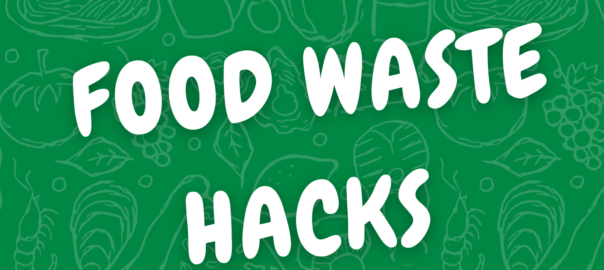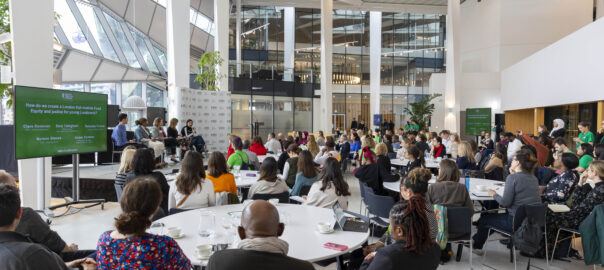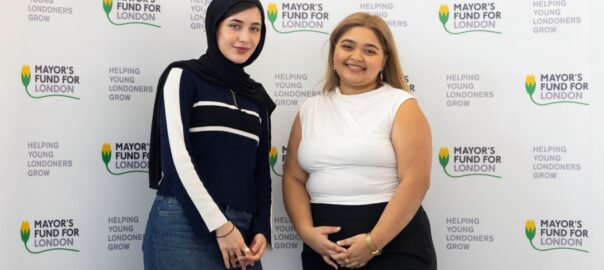How we’re co-designing holiday food programmes with young people
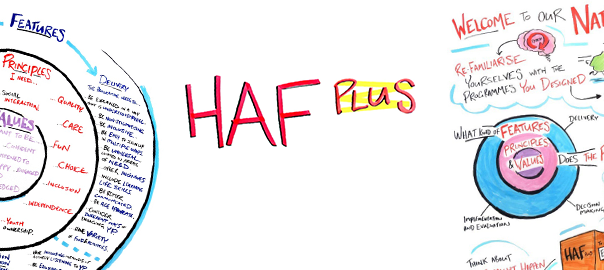
Young Londoners joined their counterparts from across the country to help improve and develop the holiday activities and food provision (HAF) programme that has supported young people outside school terms since 2018.
Working in partnership with Northumbria University, members of the Mayor’s Fund for London team and young Londoners we work with attended regional and national ‘design sprints’ alongside other charities, local authorities, and young people from regions outside the capital.
Young people proposed and developed an enhanced HAF framework – dubbed ‘HAF+’ – receiving assistance and guidance from sector stakeholders and the Northumbria University.

What’s the challenge?
The number of young people living in relative poverty in England is increasing, with more families not having enough income to afford childcare, enjoy activities, and maintain a nutritious diet – with this increasing tenfold during the school holidays. Funded by the Department for Education, the HAF programme aims to support children receiving free school meals (FSM) when outside school term.
While the HAF programme positively impacts young people, those aged 11-16 participate in lower numbers – suggesting it is not appealing to many who could benefit from the programme.
In summary, the challenge was understanding how to appeal to that age group and increase attendance while adhering to the criteria of the national HAF programme.
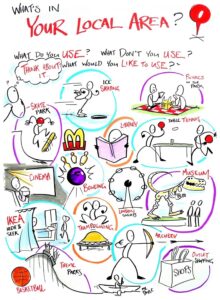
What did we do?
We worked in partnership with Northumbria University to review and design new programme ideas for a HAF+ teenage offer. This was particularly important to us as our Kitchen Social programme supports young people across the capital and we wanted to ensure we continue to evolve our work for young Londoners.
Our team joined young people supported by our programmes at regional and national ‘design sprints’, where they joined others from their age group across the country. There they shared their ideas and suggestions on improving HAF – their proposals on evolving HAF being dubbed ‘HAF+.’
There, we worked with the young people, Northumbria University, Gateshead Council, Northumberland Council, Leading Link, Street Games, and Feeding Britain to develop our ideas and understand how to progress them, creating an improved ‘HAF+’ framework to apply across the UK.
The young people then presented their ideas to delegates from government departments, local authorities, HAF coordinators, NGOs, charities, businesses, and community organisations.
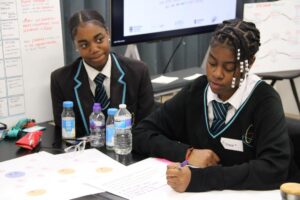
What did we find?
Following the design sprints, we’re rolling out new opportunities and have started to link Kitchen Social with employment opportunities, supporting them to gain valuable life skills and take part in wider activities which tackle ongoing societal issues young people are facing.
We are now:
- Offering cooking sessions with community chefs and putting community food boxes into our hubs, helping young people learn valuable life skills,
- Bringing community partners into the hub environment, with each organisation offering invaluable insight into areas like personal finance, mental wellbeing, and healthy living,
- Launching online resources for families and community organisations to access resources, toolkits, support, advice, and training,
- Ensuring every hub is offered healthy meals, to be given to young people, taken home, and cooked by them and their families.
You can explore a summary of our findings through an infographic we’ve produced!
Alongside these improvements, we’re working with the Mayor of London and The Felix Project to provide 10m meals and relevant nutritional education to young Londoners over the next year.

